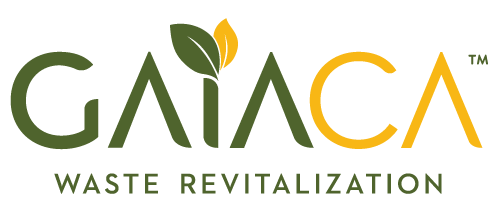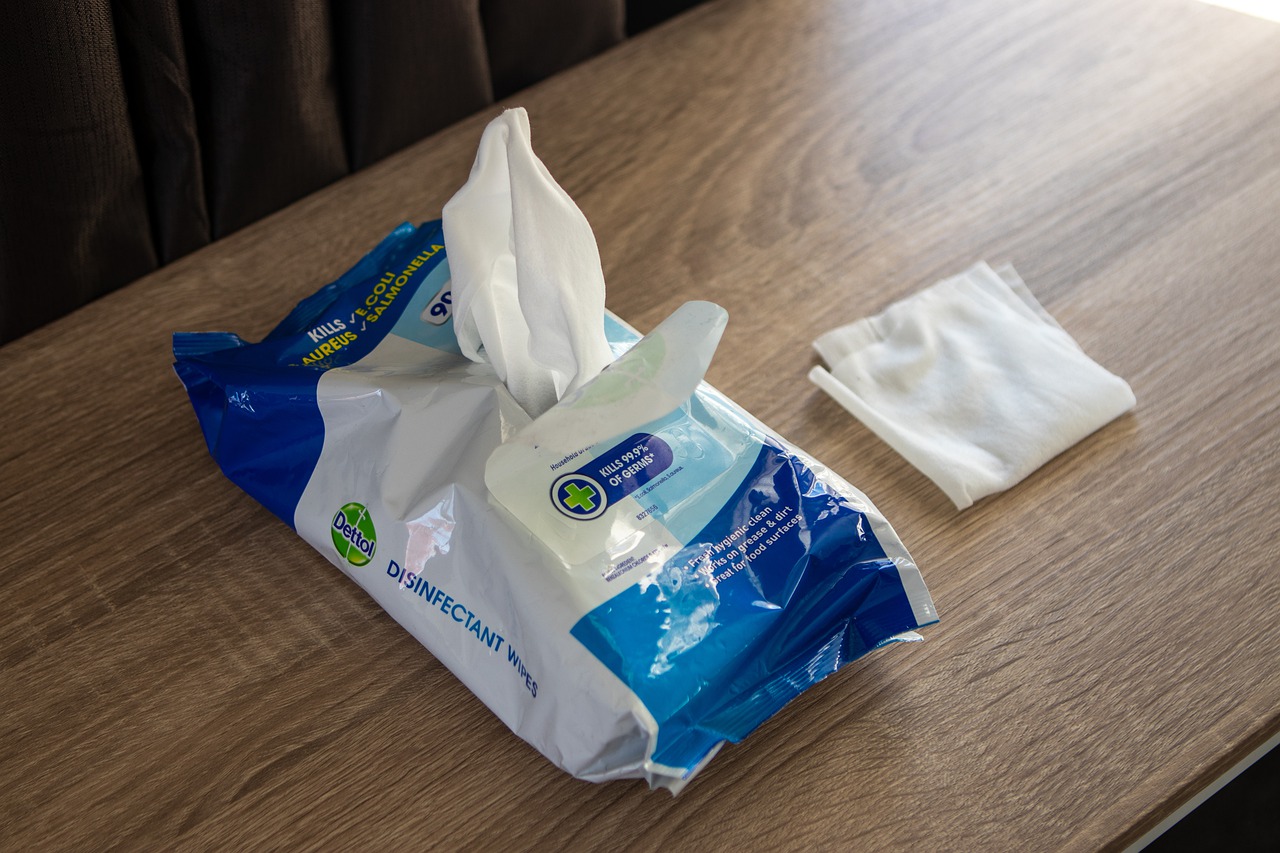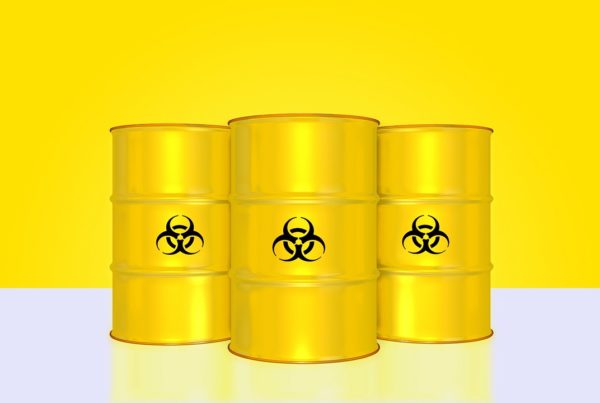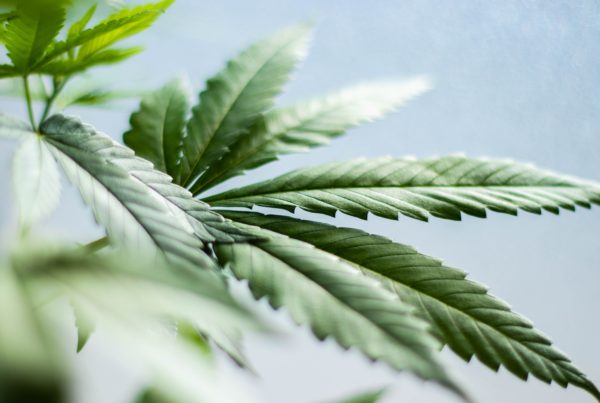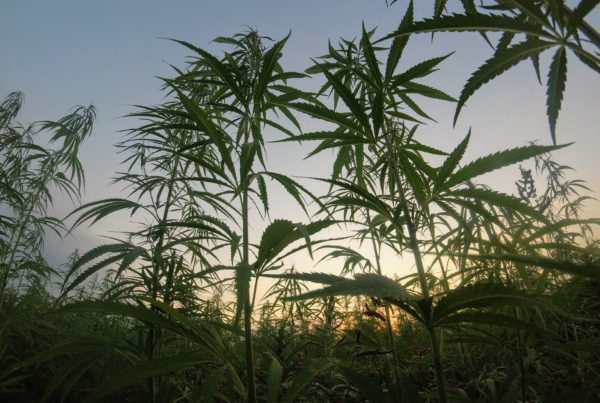If you operate a dispensary or other cannabis business, you already know that the rules for waste disposal can be complicated. But COVID-19 is shaking things up even more. Those disinfectant wipes that you use to wipe down your surfaces may have their own strict disposal requirements—and you may be in violation. It all depends on whether your business is protected by the EPA’s Solvent-Contaminated Wipes Rule (or Wipe Rule).
What Is the Wipe Rule?
Hazardous materials include flashlights, batteries, mercury-containing items, household chemicals, and anything that may harm the environment or present a physical danger when sent to a landfill. Solvents—like the kinds used in household disinfectants—are also classified as hazardous materials because they’re highly flammable.
The EPA imposes strict disposal requirements for hazardous materials. Rather than being discarded with the regular garbage, this type of refuse must be taken to a specialized hazardous waste facility and eliminated in a safe and environmentally conscious manner.
In 2013, the EPA implemented an exception to the rule. Under the wipe rule, solvent-containing wipes can be discarded with regular garbage and are not subject to the strict requirements of most hazardous waste. The exception applies to disposable disinfecting wipes as well as any reusable wipes contaminated by solvents, including rags, shop towels, and even cotton swabs dipped in alcohol.
The rule exempts all F001 through F005 solvents, including:
- Acetone
- Benzene
- Isobutanol
- Isopropyl Alcohol
- Methanol
- Toluene
- Xylenes
The exception has become especially relevant during COVID-19 as homes, businesses, and public facilities are ramping up their efforts to disinfect surfaces on a regular basis. As the CDC encourages regular disinfection to help slow the spread of the pandemic, many people are turning to powerful cleaning agents.
Consider common disposable disinfectants like Clorox Disinfecting Wipes. These are being used more and more for routine disinfection, but they contain flammable solvents like isopropyl alcohol. Most people toss these wipes in the garbage without a second thought, but they’re technically hazardous materials. Without the wipe rule in effect, it would be illegal to casually dispose of disinfecting wipes.
Thankfully, the EPA spent over a decade researching the effects of used disinfectant wipes and concluded that “wipes contaminated with certain hazardous solvents do not pose significant risk to human health and the environment when managed properly.” The wipe rule was enacted based on that conclusion.
Where Does the Wipe Rule Apply?
Unfortunately, the exception doesn’t apply everywhere. It only applies in states that have chosen to adopt it. Most states have adopted the wipe rule, but more than a dozen states have not. The following states and localities have not adopted the rule:
- California
- Colorado
- Delaware
- District of Columbia
- Kansas
- Maryland
- Massachusetts
- Minnesota
- Nevada
- New Mexico
- New York
- South Dakota
- Vermont
- Wisconsin
So if you operate a cannabis business in a state like California, Colorado, or Nevada, disinfectant wipes—and any cloth materials that have come into contact with ignitable solvents—must be treated as hazardous waste and discarded at an appropriate facility.
Even if you do live in a state that recognizes the wipe rule, you’re not completely off the hook. The EPA has very specific standards and guidelines for compliance. For example:
- The contaminated wipes must be managed in closed, airtight containers labeled “Excluded Solvent-Contaminated Wipes.”
- All free liquids must be eliminated prior to final disposal, thus minimizing the likelihood of solvents being released into the environment.
- Accumulated wipes must be discarded within 180 days and cannot be stored indefinitely.
So the wipe rule doesn’t negate the need for responsible disposal. It simply imposes less stringent disposal requirements and allows the materials to be discarded in a standard landfill as opposed to a hazardous waste site.
How to Manage Solvent Wipes at Your Cannabis Facility
Businesses must take hazardous waste regulations seriously, as the penalties can be substantial. For example, California’s Department of Toxic Substance Control (DTSC) imposes hefty fines and restrictions on businesses that don’t properly label and dispose of hazardous waste.
Those businesses subject to the EPA’s Resource and Conservation and Recovery Act (RCRA) can face especially fierce consequences. Hazardous waste violations can incur fines as high as $70,117 per day, per violation.
The best thing you can do to manage this type of waste is to work with an experienced waste management company. As a fully licensed hazardous waste hauler, GAIACA proudly works with businesses in California’s cannabis industry. We can help you to maintain proper labeling and handling standards and provide you with compliant pickup and disposal. If you’d like to learn more about our services, call us today at 833-CAL-GAIA.
Most importantly, remember to think twice before tossing those disinfecting wipes in the garbage.
